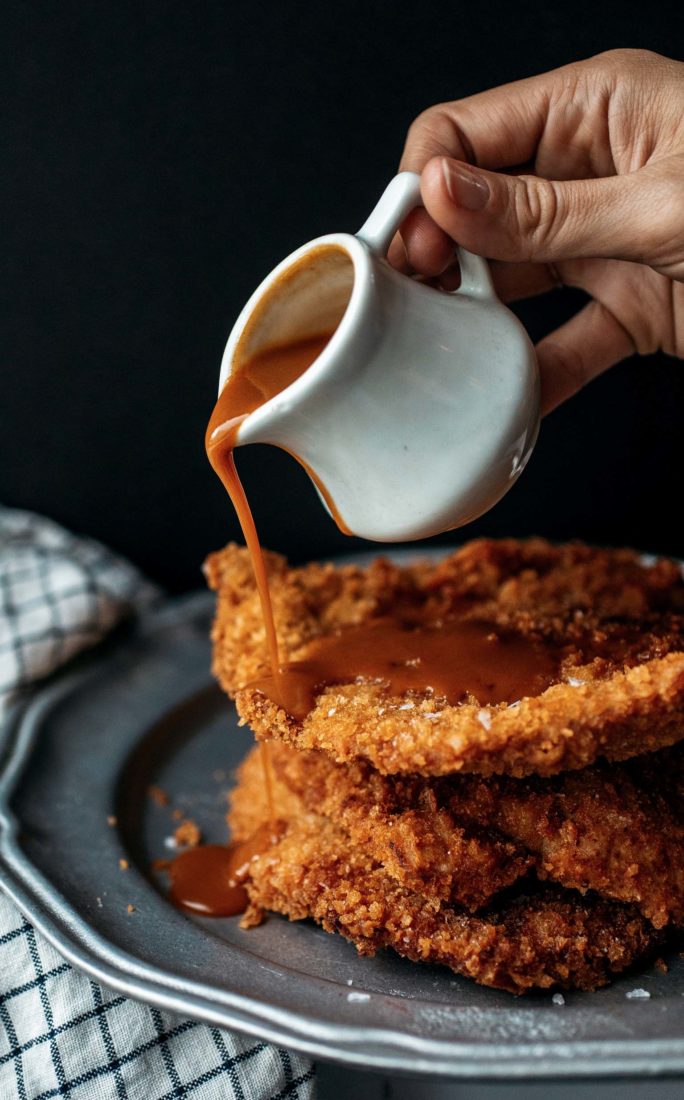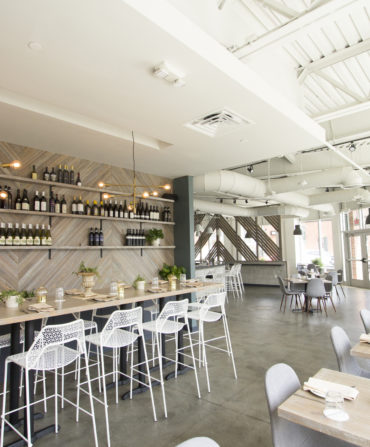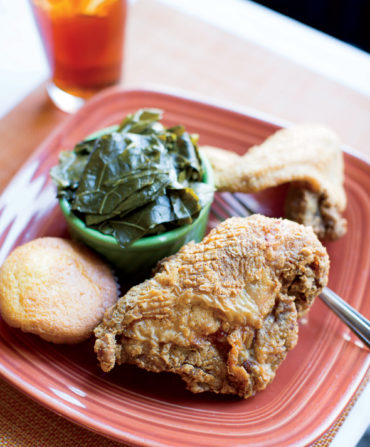Brenner Pass, the second Richmond restaurant from the chef Brittanny Anderson and her team, projects a Teutonic warehouse vibe. Chairlift, the adjacent coffee and pastry shop, channels an Austrian ski lodge. Beginning here in the pretend Alps, Anderson wends her way across Europe. Mace-perfumed sausages reference the Savoy region of France. Spanish sherries get more play than Chardonnay.
That Eurocentric conceit works. But before we go deep, I should tell you that Anderson’s best restaurant is her first: Metzger Bar & Butchery, a brick-fronted café across town in Union Hill. For lack of a good label, I’ll call Metzger Germanish and tell you that it’s a singular restaurant in a moment when those are few.
Dinner at Metzger conjures a scene in which Anderson combed vinyl at a used record store, bopped her head to songs that others ignored, and emerged to say that Trans-Europe Express, the 1977 Kraftwerk album, is worth another listen, and Käsekrainer, a smoked sausage larded with Emmentaler cheese, is worth another bite. About the latter, she’s right.

Photo: Kate Thompson
Chef Brittanny Anderson.
Anderson’s reliance on German goods and inspirations defines Metzger. Witness her crisp Wiener schnitzel of battered and fried veal, presented with creamed oyster mushrooms and a thicket of vinaigrette-glossed arugula. And, yes, the by-the-glass list features mostly German and Austrian wines. But Metzger is less a German tribute restaurant than a restaurant that accords Germanic food the respect it deserves though rarely gets.
American foreign policy, good and ill, shapes which restaurants Americans frequent. Relatively few Afghan restaurants thrive here. (Baltimore, where Helmand leads the pack, is a grand exception.) Although pho shops and bánh mi cafés now necklace the Gulf Coast, they were few before the fall of Saigon. The ascent and decline of German restaurants, in the years before and after the world wars, tracks a comparable geopolitical path.
During the nineteenth century, Germans were the largest immigrant group in America. The wheeze and bellow of contemporary Tejano accordion music shows that influence. And chicken-fried steak is just Wiener schnitzel in a denim apron. Step beyond the Frankfurt-lent-its-name-to-frankfurters narrative, and abiding linkages to our cooking unwind.

Photo: Kate Thompson
Metzger’s Orchard House cocktail includes apple brandy and black walnut bitters.
“I started out thinking of it as a beer hall situation,” Anderson, a Richmond native who previously cooked at Blue Hill at Stone Barns in New York and the Roosevelt here, told me. “But I just couldn’t stop myself. I fell in love with taking weird old German ideas and making them new again.”
Metzger reflects a bit of that beer hall aesthetic. The space, which opened in 1892 as a grocery, begat a shoe store and morphed into a gambling hall and then a church commissary before Anderson and her partners, Nathan Conway and Brad Hemp, planted their flag in Union Hill, once home to meatpacking companies and tanneries.
The bones of that grocery show in the shotgun room, flanked by a white-subway-tile-backed bar. Butchery woodcuts line the walls. A map of Munich, rescued from some epoch past, dangles on a string alongside. Pewter platters, mounted at eye level, evoke European tavern service and refract and diffuse light.

Photo: Kate Thompson
Bottles of German and Austrian wine.
The bar displays all the right bottles. Yellow, green, and very old green Chartreuse stand tall. Stroh, an Austrian rum cousin, looms among shelves stacked with beer glasses. When I ask for a tout, bartender Rachel Boxley recommends a Schlenkerla Helles Lagerbier. Made with oak-smoked hops, it tastes like a ham sandwich on sourdough rye. And it pairs beautifully with my schnitzel.
Speaking of schnitzel, the menu is succinct, usually six appetizers and six to eight entrees. Short menus are trustworthy menus. I learned that in a barbecue joint that served blackened tilapia and shall remain nameless. Dinner at Metzger confirms my prejudice. Anderson and her team focus on doing something well. Some thing. Not every thing. “I like working within a box,” Anderson told me. “The question is, how much can I do within that box?”
Plenty. Order scallops instead of that sexy schnitzel, and fat porcelain disks with a cast-iron char arrive in a tumble of pickled raisins. The natural sweetness of the raisins plays well against the pucker of vinegar. With each puncture of a fork tine or draw of a knife blade, a sweet and sour sauce forms on the plate and begs you to draw a hunk of shellfish through it.
For a Germanish restaurant, Metzger actually excels at vegetable cookery and assembly. Consider the carrot salad of thin orange ribbons tossed with tots of crab. Better yet, order the wurst salad, adrift on a puddle of beer cheese, bobbed with coins of garlicky knockwurst, and haystacked with crisp kohlrabi batons. The sausage is hot, the kohlrabi is cold. Pretzel shrapnel sounds like Pop Rocks in your mouth.
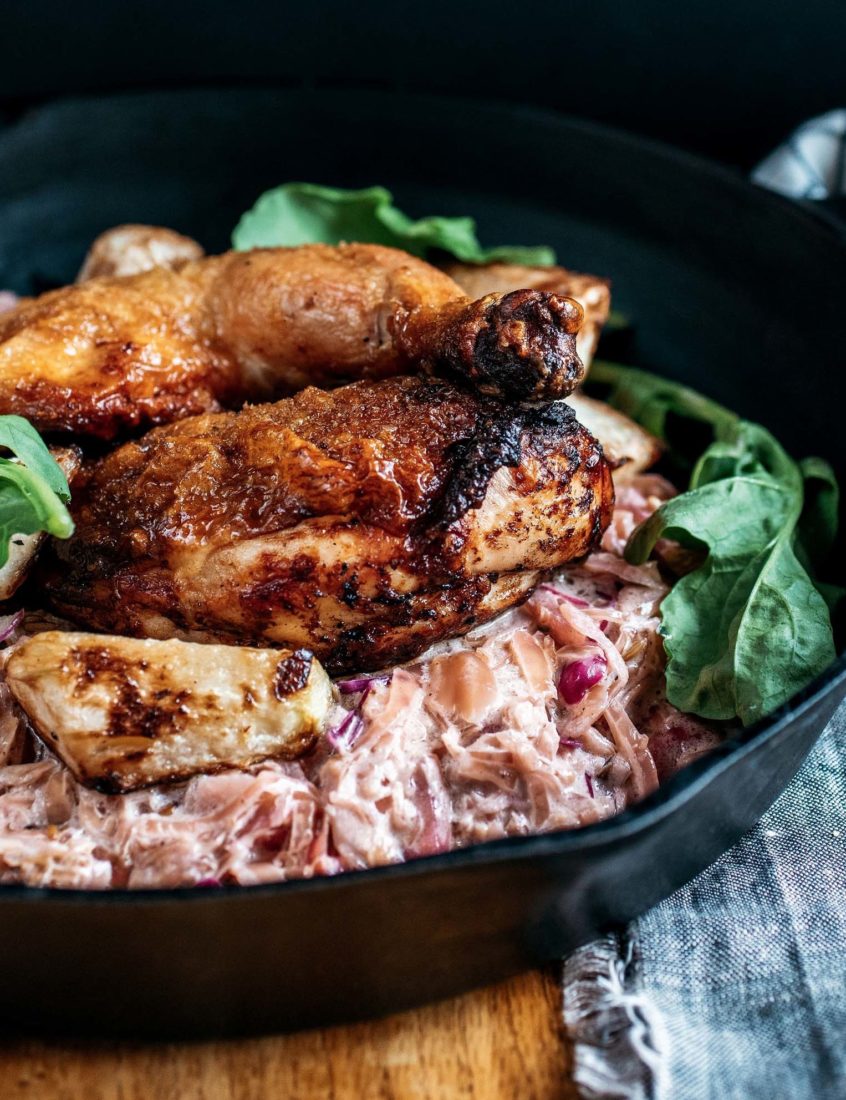
Photo: Kate Thompson
Roasted chicken with creamed sauerkraut.
Mushrooms, shaved into irregular nubs, get a beer batter that recalls tempura. A rye-bread-bound aioli pools at the bottom of the bowl. Forget all those fern-bar fried mushrooms you’ve dunked into ranch. This redeems the form. And begs the question, How did everyone else get this so very wrong?
Every great night must end. Instead of succumbing to a chocolate torte infused with cardamom, I note a sling of Underberg minis hanging from a shelf like a bandolier. A nod in that direction gets me a brown-paper-sheathed bottle of the German digestif, green cap untwisted, served upside down in an elegant stemmed glass. The slogan on the label reads like a promise: “After a good meal, to feel bright and alert.”
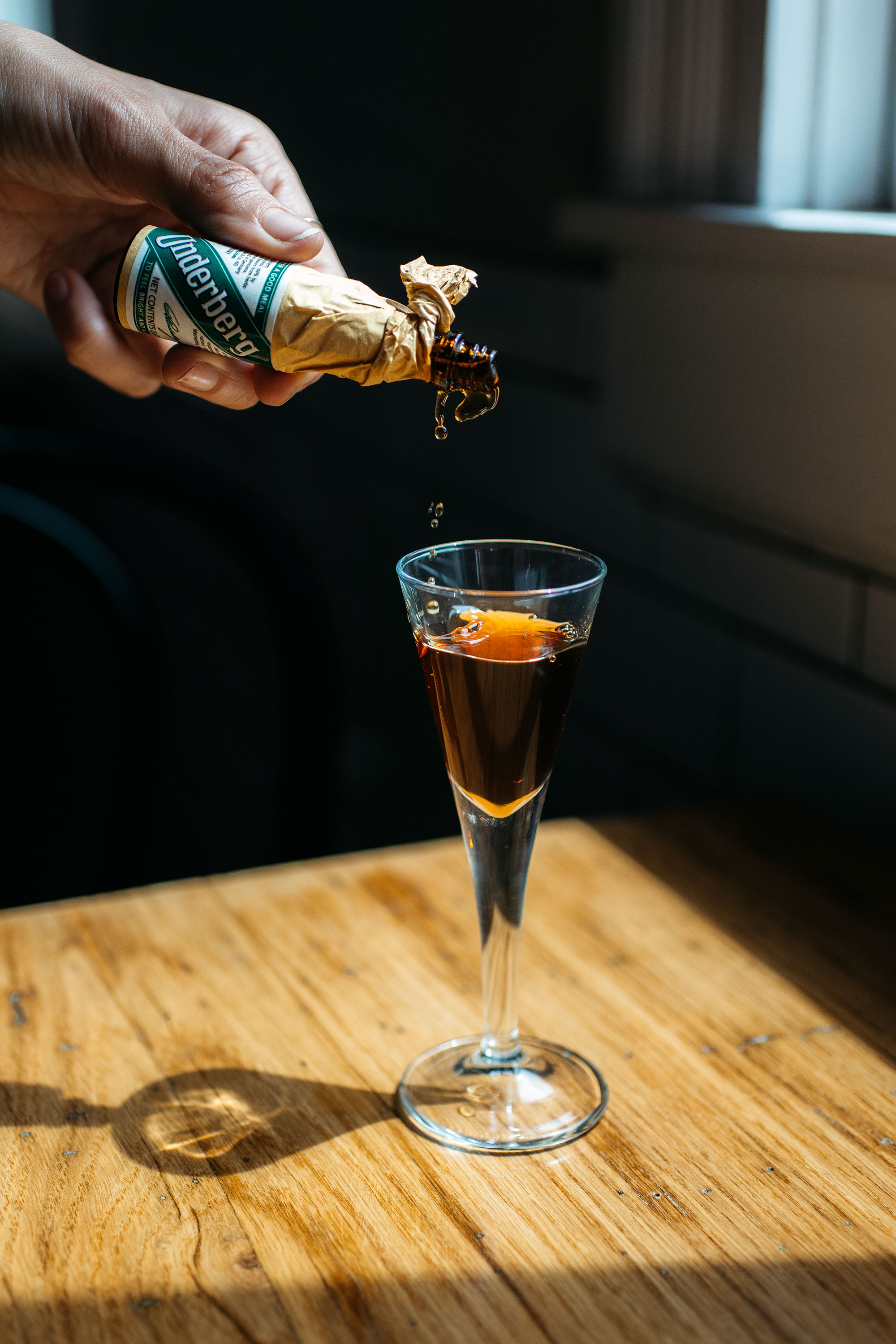
Kate Thompson


